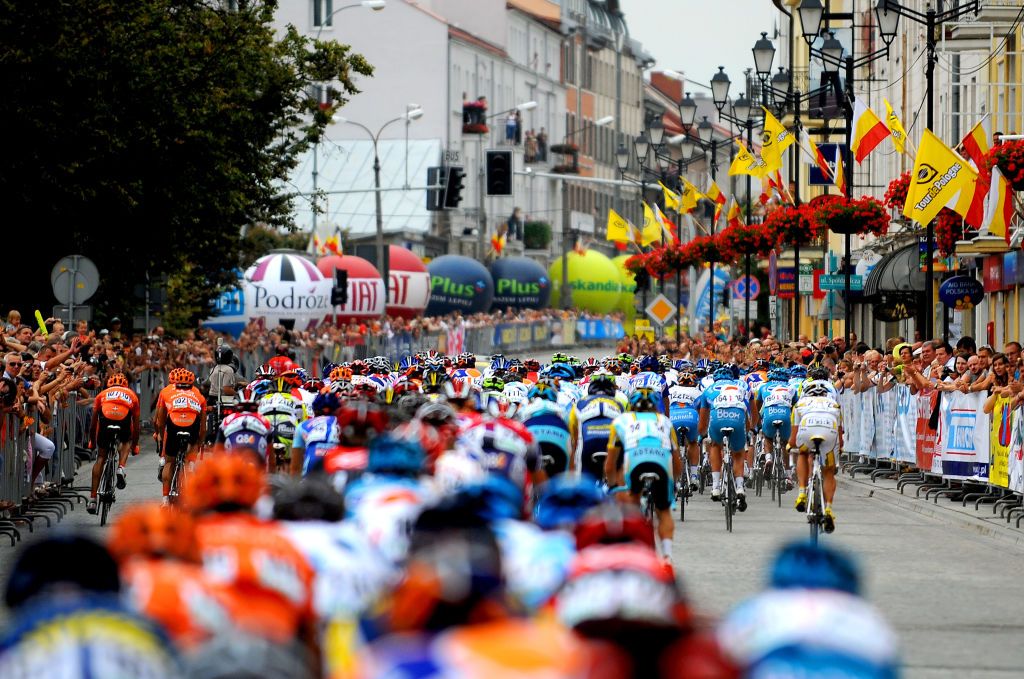It’s no secret that bike races everywhere have an exceptional knack for building their way into a nation’s collective social and cultural fabric. The Tour de France has always been part of France’s summer holidays, after all, and the devotion of the Giro d’Italia’s tifosi to Italy’s biggest two-wheeled event is well-known far beyond the country’s frontiers..
However, while not all week-long stage races manage to achieve such deep connections with their local fans and history, the Tour de Pologne is clearly an exception to that unwritten rule.
For example, organisers estimated the number of fans gathering to watch local star Michal Kwiatkowski take his first Tour de Pologne in 2018 at around three million – and to judge by the massive numbers of Pologne spectators roadsides last August in cities like Krakow and Rzeszow, that popularity shows no sign of diminishing. Equally impressively, a few years back a global total of no less than 300 million Pologne fans watched the race worldwide on TV.
Many of these TV viewers and roadside fans are not dedicated year-long cycling supporters, of course. But as local analysts point out, interest and affection for the Tour de Pologne have deep roots in Poland and stretch well beyond its 95-year racing history.
“It’s not just the biggest annual sporting event in Poland, it’s probably the biggest in our part of Europe,” says Kamil Wolnicki, a Polish journalist who began covering the Tour de Pologne back in 2006 and whose newspaper, Przegląd Sportowy Onet, was jointly responsible for founding the race, together with the Warsaw Cyclists’ Association, back in 1928.
“Year after year, it seems like everybody you talk to here in Poland knows the Tour de Pologne is going to happen.”
“In terms of single-day sports events, football and ski-jumping are definitely more popular. But the Tour de Pologne lasts an entire week, and that’s where it ‘wins’.”
This deep-seated popularity is perhaps all the more remarkable given that for decades after World War II, another top central European cycling event, the Peace Race “was the most important race here, because it was favoured by the authorities.”
“The Peace Race was a stage race that covered the entire Communist ‘bloc’ of countries like the Czech Republic and former East Germany as well as Poland, so the Tour de Pologne was kept in the shadows.”
But just like in Poland in general, after the Berlin Wall fell in 1989, “a lot changed in…
Click Here to Read the Full Original Article at CyclingNews RSS Feed…

